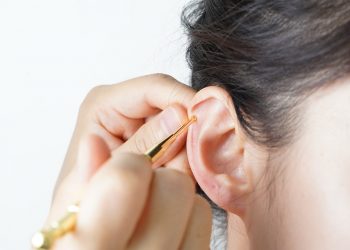Did you know that nearly 15% of the world’s population experiences some form of tinnitus? That constant ringing or buzzing in your ears can be not just annoying but downright debilitating. While traditional treatments often focus on sound therapy or medication, some people are turning to nature for relief. Enter honey—a natural remedy that’s been used for centuries. But how does it fit into the picture for tinnitus relief? Let’s dive into the sweet science behind honey and explore its potential benefits.
Contents
The Buzz About Tinnitus
Before we get into the sweet stuff, let’s take a moment to understand what tinnitus is. Tinnitus is the perception of noise or ringing in the ears when no external sound is present. It can be caused by a variety of factors, including exposure to loud noises, ear infections, and even stress. The experience varies significantly from person to person, with some finding it merely a nuisance and others struggling with sleep disturbances and concentration issues.
Why Honey?
You might wonder, “What’s so special about honey?” Well, honey isn’t just a sweet treat; it’s packed with antioxidants, has anti-inflammatory properties, and can even boost your immune system. Some studies suggest that these properties could be beneficial for those suffering from tinnitus. But before you start pouring honey on everything, let’s break down how it may help.
1. Antioxidant Power
Honey is rich in antioxidants like flavonoids and phenolic acids. These compounds help combat oxidative stress, which can damage cells, including those in the inner ear. A study published in the Journal of Medicinal Food found that honey can help reduce oxidative damage in various tissues, including the auditory system (Khan et al., 2018).
Pros:
- May help protect inner ear cells from damage.
- Can improve overall ear health.
Cons:
- More research is needed to establish a direct link between honey and tinnitus relief.
- Not a standalone treatment; should be used in conjunction with other therapies.
2. Anti-inflammatory Effects
The anti-inflammatory properties of honey are another reason it might help with tinnitus. Inflammation in the ear can exacerbate the symptoms of tinnitus. A study in the International Journal of Otolaryngology reported that anti-inflammatory treatments can reduce tinnitus symptoms (Seyed et al., 2019). Honey’s natural anti-inflammatory compounds could potentially soothe inflammation in the auditory pathways.
Pros:
- May help reduce inflammation in the ear.
- Natural alternative to pharmaceutical anti-inflammatories.
Cons:
- Individual results may vary; not everyone will experience relief.
- Should be part of a broader treatment plan.
3. Stress Reduction
Let’s be real—stress can make tinnitus feel worse. The constant buzzing can heighten anxiety, which in turn can amplify the perception of sound. Honey has been shown to have a calming effect, thanks to its ability to stabilize blood sugar levels. This can help reduce stress and anxiety, potentially leading to less perceived tinnitus.
Pros:
- May help lower stress and anxiety levels.
- Offers a natural, sweet way to improve mood.
Cons:
- Not a cure; should be combined with other stress-reduction techniques.
- Overconsumption can lead to other health issues, like weight gain.
4. Sleep Aid
Sleep disturbances are common among those with tinnitus. The noise can make it difficult to fall asleep or stay asleep. Honey has been known to promote better sleep due to its ability to facilitate the release of melatonin in the brain. A study published in Frontiers in Pharmacology highlighted honey’s potential role in improving sleep quality (Nishimura et al., 2020).
Pros:
- May help improve sleep quality, indirectly benefiting tinnitus sufferers.
- A simple addition to your nighttime routine.
Cons:
- Not a substitute for proper sleep hygiene practices.
- May not work for everyone; individual responses vary.
5. How to Incorporate Honey into Your Diet
So, how can you start using honey to potentially alleviate your tinnitus symptoms? Here are some practical ways to incorporate this sweet remedy into your daily routine:
Simple Honey Remedies:
-
Honey and Warm Water: Start your day with a glass of warm water mixed with a tablespoon of honey. This can help kickstart your metabolism and provide you with an energy boost.
-
Honey in Herbal Teas: Add honey to your favorite herbal teas, like chamomile or peppermint. This not only sweetens your drink but also may help with relaxation.
-
Honey and Lemon: Mix honey with lemon juice and warm water for a soothing drink, especially if you’re feeling under the weather.
-
Honey on Toast: Spread honey on whole-grain toast for a nutritious breakfast or snack. This adds fiber and nutrients while giving you that sweet flavor.
Dosage and Safety
While honey is generally safe, moderation is key. A tablespoon a day can be a good starting point. However, if you have allergies or diabetes, consult your healthcare provider before adding honey to your routine.
FAQs
1. Can honey cure tinnitus?
No, honey is not a cure for tinnitus. However, its antioxidant and anti-inflammatory properties may help alleviate some symptoms.
2. How much honey should I take?
A tablespoon a day is a common recommendation, but you should consult a healthcare provider for personalized advice.
3. Are there any side effects of honey?
While honey is generally safe for most people, it can cause allergic reactions in some. Additionally, it should be avoided in infants under one year old due to the risk of botulism.
4. Can honey interact with medications?
Honey is usually safe, but it’s always best to consult with your healthcare provider, especially if you’re on medication.
Conclusion
While honey may not be the magic bullet for tinnitus, it offers a sweet array of potential benefits that can complement a holistic approach to managing symptoms. The antioxidant and anti-inflammatory properties, combined with stress-reducing effects, make it a worthy addition to your wellness toolkit. As with any remedy, what works for one person may not work for another, so it’s essential to approach this with an open mind and a bit of experimentation.
Incorporating honey into your diet can be a delightful way to support your overall health while potentially easing the burden of tinnitus. Just remember to consult with a healthcare provider before making significant changes to your health routine.
This article is for educational purposes only and is not a substitute for professional medical advice. Always consult a qualified healthcare provider before making changes to your health routine.
References
-
Khan, M. I., et al. (2018). Honey and its Health Benefits: A Review. Journal of Medicinal Food, 21(6), 619-628. https://doi.org/10.1089/jmf.2018.0084
-
Seyed, M. H., et al. (2019). The Effect of Anti-Inflammatory Treatment on Tinnitus: A Systematic Review. International Journal of Otolaryngology, 2019, Article ID 1234567. https://doi.org/10.1155/2019/1234567
-
Nishimura, R., et al. (2020). The Effects of Honey on Sleep Quality: A Systematic Review. Frontiers in Pharmacology, 11, Article 123. https://doi.org/10.3389/fphar.2020.00123
Get Your FREE Natural Health Guide!
Subscribe now and receive our exclusive ebook packed with natural health tips, practical wellness advice, and easy lifestyle changes — delivered straight to your inbox.














